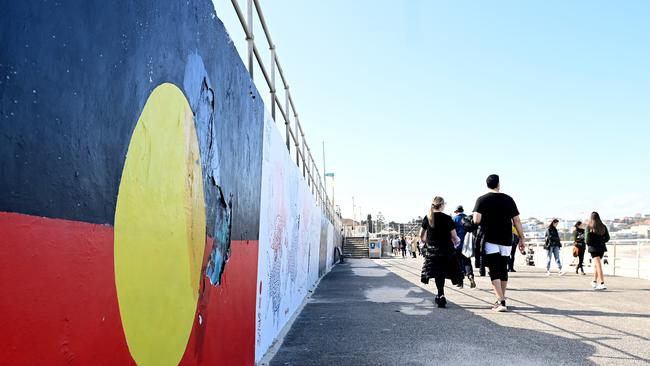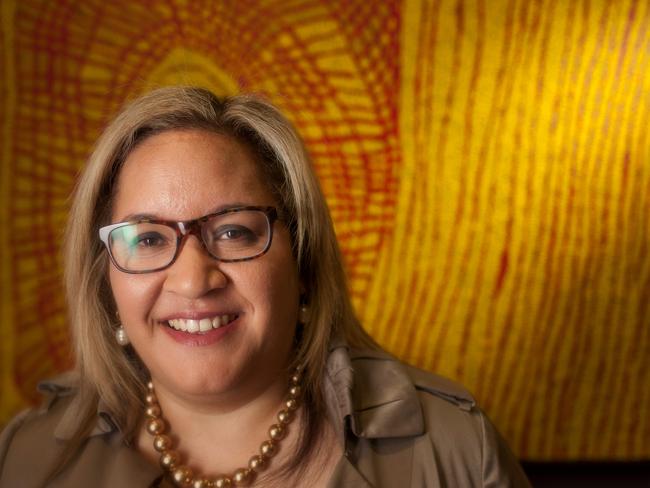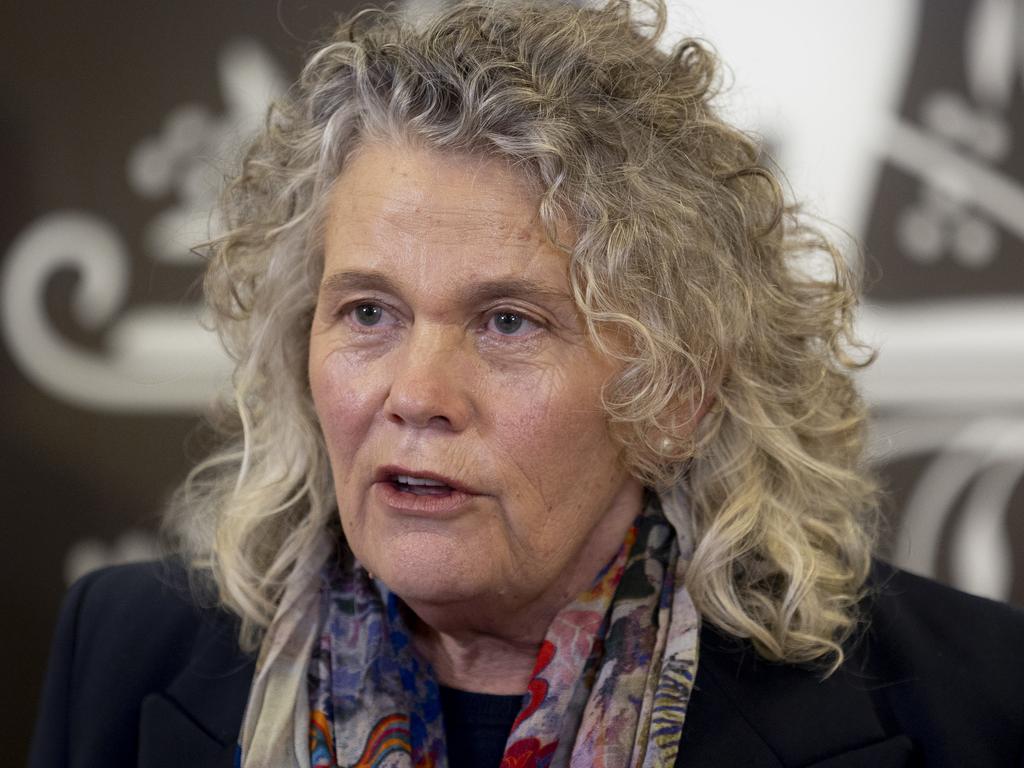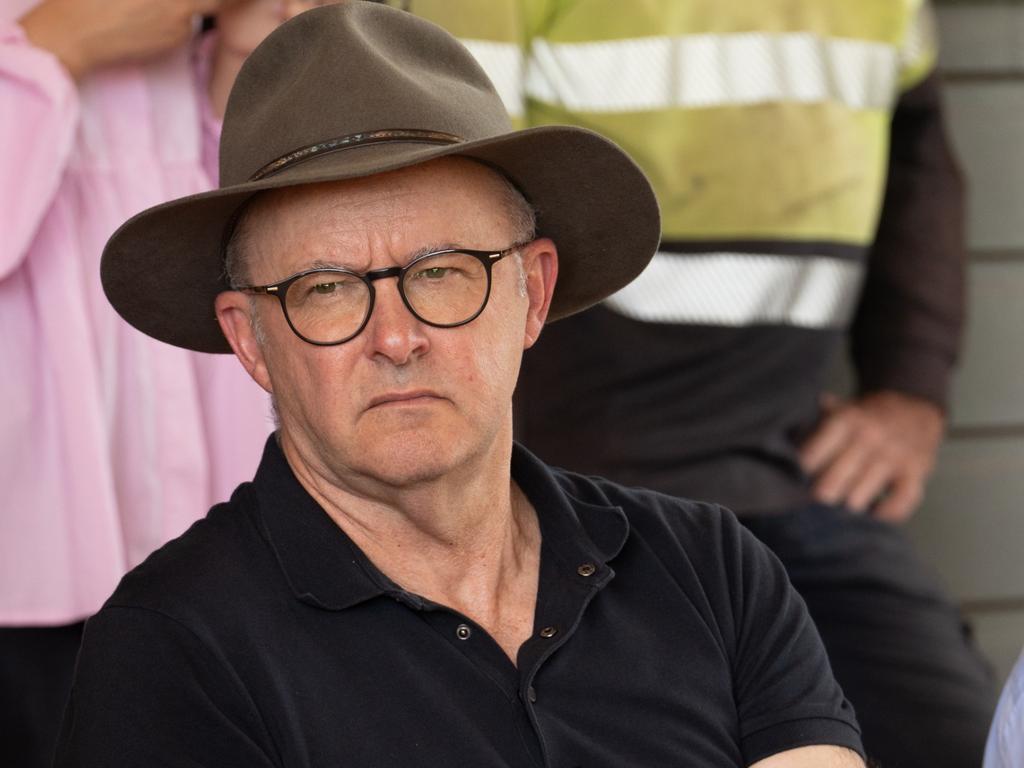
Five years ago when she and other Indigenous women delegates returned from the First Nations National Constitutional Convention at Uluru, they began talking to the boards and CEOs of our biggest companies, asking for support for the document agreed there, the Statement from the Heart.
Davis, whose Indigenous Law Centre at the University of NSW has been core to developing the voice concept, says it was a pretty easy sell to business.
And it’s not, as some critics claim, because big business is woke these days: “It’s not about identity politics, it’s because the corporates had for years enthusiastically taken up the Reconciliation Action Plan programs from Reconciliation Australia. They just got it.”
Ironically Davis, who is a constitutional lawyer and professor of law at UNSW, is no fan of the RAPs so popular among corporates, arguing they don’t require any government action and don’t address fundamental issues of justice for First Nations people. But the RAPs proved vital in preparing the groundwork in companies.
When Davis and others in the Uluru Dialogue reached out, they found business understood the voice because under the RAPs they had already set up “voices” or advisory bodies to their own boards.
Says Davis: “This has been a very Australian organic change where over time corporates have built things that look a lot like the voice to advise on policies the board or the business is going to implement. It’s a very serious practice in many parts of corporate Australia. To reduce it or minimise it is as just woke is really unfair.”
The Uluru Dialogue is a coalition of Indigenous women connected with land councils and other organisations across the country — led by people such as Pat Anderson, one of the country’s most senior health administrators, and Sally Scales, the former chair of the APY Lands. Since the Uluru meeting in May 2017, it’s been the prime grassroots group explaining the voice in face-to-face meetings, speeches and other events. Every Friday night for five years, the group has held a Zoom planning meeting attended by up to 70 women leaders.
It’s led the way in connecting with Australians along with other advocacy bodies, such as Dean Parkin’s From the Heart.

The dialogue has tax free status for donations via the Indigenous Law Centre but corporate donations are more likely to flow to a group called Australians for Indigenous Constitutional Recognition, led by high-profile lawyer Danny Gilbert and Indigenous leader Noel Pearson. That group has been set up in the past couple of months to attract corporate funds for the Yes campaign. But there is widespread recognition in business of the leadership that flows from the Uluru Dialogue: for example, last year, KPMG became an official supporter of the dialogue.
Davis says many different groups will be needed this year to explain the voice but she’s keen for the work of Indigenous women to be recognised. “So often they’re working in the background, yet they are so crucial to change,” she says. In one example, Davis and others began talking to the teal MPs 18 months before the federal election last year: by the time of the campaign, the teals were well and truly onside.
Says Davis: “Over five years, we’ve given speeches, we’ve gone to schools, we’ve gone to the Minerals Council, we’ve gone to Atlassian, to Telstra, to the banks, to the law firms, to every professional services firm in the country. We’ve handed out merchandise at NRL games. We have an endorsement database where we’ve tracked every endorsement since May 2017. We see ourselves as the cultural authority on these statements. We did the hard yards on the smell of an oily rag. We’re the mob.”
Davis is particularly sensitive to the role of women partly because Indigenous women were sidelined in ATSIC — The Aboriginal and Torres Strait Islander Commission — which ultimately failed as a representative body. The federal government has gone out of its way in recent months to stress that the voice will have gender balance.
“Recognising female leadership is important because with ATSIC, women’s voices, women’s leadership, just get drowned out,” Davis says. “We’re really seeing now the endurance of black women when they’re fighting for their rights. That needs to be properly recognised because too often in our culture, we say the women are in the background doing the heavy lifting and we don’t need recognition.”
The Uluru Dialogue has been important in boardrooms but also in remote areas: “We have a lot of remote area women working with us, so the idea we are just a group of elite inner city, urban women is a false one.”
Davis is positive about the referendum, saying that polling has been firm at about 60 per cent in favour: “I guess in mainstream media, it’s the racism that gets clickbait but Australians actually support a structural change.”
She says face-to-face contact to explain the voice is important in helping non-Indigenous Australians feel comfortable about the conversation.
“Sometimes it can be difficult for people to ask questions without feeling that they will be accused of being racist, and that’s really problematic because we need people to ask questions and feel comfortable,” she says.







Professor Megan Davis, a key mover behind the Indigenous voice to parliament, says she didn’t have much trouble convincing corporate Australia to back the “yes” case in the forthcoming referendum.